JPEG Systems Enriches JPEG’s Legacy
The Joint Photographic Experts Group (JPEG) is a Working Group of ISO/IEC, the International Organisation for Standardization / International Electrotechnical Commission, (ISO/IEC JTC 1/SC 29/WG 1) and of the International Telecommunication Union (ITU-T SG16), responsible for the popular JPEG, JPEG 2000, JPEG XR and more recently, the JPSearch and JPEG XT families of imaging standards. The WG1 group meets nominally three times a year, in Europe, North America and Asia. The latest meeting was held on March 31 – April 4, 2014 in Valencia, Spain.
During the 65th Valencia Meeting, the JPEG committee initiated the new work item entitled "JPEG Systems". It targets the harmonization of the existing JPEG standard’s architectures and provides guidelines for future JPEG standards. By these means it lays the foundation for an interoperable ecosystem of tools permitting to store, transport and protect images encoded by various standards. In this context, a first activity will be focused on file format and codestream guidelines.
JPEG Systems is enriched by an additional activity that aims at providing JPEG privacy and security tools. Several inputs have been received to the corresponding call for participation. Those will now be consolidated to an overall architecture, enabling to ensure the privacy of image data and associated metadata. Interested parties are welcomed to participate to this standardization process.
The JPEG XT standard has become a multipart standard due to the broad range of applications it is intended to support while building upon JPEG’s legacy. In specific, the standard will include support for High Dynamic Range (HDR) images since such images have become increasingly important for modern camera applications, but the need to code such images in a way that is backwards compatible to the dominating 10918-1 standard has not yet been addressed. Both integer and floating-point based HDR imagery will be supported. Furthermore, lossless and near-lossless coding, and alpha channel coding functionality is envisaged.  "JPEG Systems is an important standardization activity for the JPEG committee, it enriches JPEG’s legacy and assures interoperability between the different JPEG standards while providing placeholders that provide functionality support for augmented reality, privacy and security." said Dr. Daniel Lee, Convener of the JPEG committee.
The JPEG web site (http://www.jpeg.org) has sponsorship opportunities for all companies involved in developments around JPEG. The marketing departments of interested companies should contact the webmaster for this high-traffic site.
The next (66th) WG 1 Meeting and its ad hoc group meetings will be held on July 7-11, 2014, in Sapporo, Japan.
